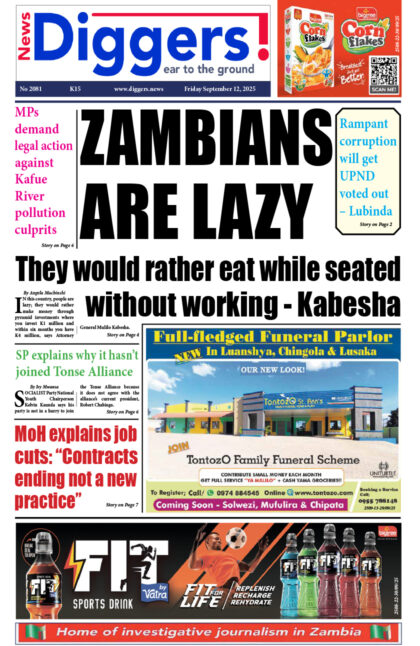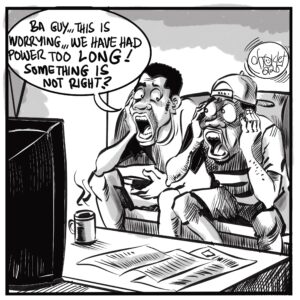Economist Chibamba Kanyama says the Economics Association of Zambia (EAZ) has deviated from its original mandate of providing credible and sound economic policy advice to government.
On Monday, Kanyama tweeted that Finance Minister Dr Bwalya Ng’andu should be mindful of who he listens to, noting that government would “not have hit the Value Added Tax (VAT) versus Goods and Services Tax (GST) iceberg” if the EAZ played its role adequately.
“If the Economics Association of Zambia had acted as a trusted advisor, objective and independent in its positions, the government would not have hit the VAT vs GST iceberg. I hope Dr Bwalya now knows who to listen to if he has to be a successful Fin Minister,” Kanyama tweeted.
He added that there was need to go back to the drawing board of integrity among the country’s leadership.
“President Lungu has acknowledged the high cost of living in Zambia and invited those with ideas to come forward. My submission is that we need to go back to the drawing board of integrity among the country’s leadership. It all starts from there. Happy to share details with H.E. (His Excellency),” read another tweet.
And in an interview, Kanyama explained that the Association was slowly losing trust in the eyes of stakeholders and risked not being taken seriously even when offering credible policy advice.
“We all know; the whole country is talking about it; the founding fathers of EAZ are talking about it; the former members are talking about it; the whole thing is: there is a huge concern that the EAZ has deviated from its original mandate of being an independent trusted body, that one is a fact, that one everybody knows, it’s something that economists are talking about everywhere you go. So, the moment you lose the trust of the stakeholders, even if you are saying something that is credible, people will think that the motive is not right. People should not be judging EAZ on based on motive, they should be judging EAZ based on the data, the information provided, it should never be contaminated with motive,” Kanyama said.
“The mandate Economics Association of Zambia should be of offering advisory knowledge to all stakeholders and government is only part of those stakeholders; it’s not only for the government, anybody can find the EAZ as a resourceful think-tank, actually it’s a think-tank of economic professionals and should be in a position to offer counsel, researched knowledge, researched information to guide, whether it’s the private sector, whether it’s the government, whether it’s political parties. Whether it’s the political party in power or the opposition, they can find the EAZ as a resourceful entity on issues of the economy. This is based on a number of things, such as helping with economic modeling, now this is where you can project, offer information that can project outcomes of political, economic and social decisions, you can project the outcome that if we make this decision, what will be the outcome and this is what EAZ is supposed to be doing: to guide on economic modeling, economic thinking, economic advice those are the areas of the EAZ, and they should not be aligned to anyone, they should be trusted by all players.”
He called on the EAZ to re-craft its mandate because its allegiance had been questioned.
“Everybody should be able to access EAZ, whether it academia, whether it is the Church, whether it is political parties, whether it is government, whether it is private sector, they should find this think-tank trusted, information given from it should be trusted, in other words, it should have integrity, that’s what I think the role of the EAZ is. The EAZ should not be questioned as to its allegiance, the moment there is a question about its allegiance, the EAZ should go back to the drawing board to re-craft its mandate, its vision and check itself as to whether it is aligned to independent thinking,” advised Kanyama.
But in an apparent response to Kanyama’s tweet, EAZ president Dr Lubinda Haabazoka said the Association had finally managed to set boundaries between economics and journalism.
“@lhabazoka: For once, EAZ has managed to set boundaries between economics and journalism,” tweeted Dr Haabazoka, who by press time could neither elaborate his Tweet or react to stakeholders’ concerns.
























